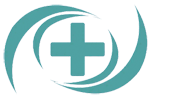Cardiac Recovery: A Roadmap to a Healthier Heart
|
Every year, millions of people experience cardiac events like heart attacks, heart surgeries, or are diagnosed with chronic heart conditions. The days and weeks that follow these events are crucial, not just for immediate recovery but for long-term health as well. This is where cardiac rehabilitation centers come into play. These specialized facilities offer structured programs designed to improve cardiovascular health, helping patients transition from hospital care to a more independent lifestyle. What Is Cardiac Rehabilitation?Cardiac rehabilitation is a medically supervised program that aims to help improve the health and well-being of people who have heart problems. It usually involves:
How Muscular Dystrophy Affects the Heart:While the primary symptoms of muscular dystrophy (MD) involve skeletal muscle degeneration, the condition can also affect cardiac muscle, leading to heart-related issues. This is particularly true in certain types of muscular dystrophy, such as Duchenne and Becker muscular dystrophies.
In Duchenne muscular dystrophy, one of the most common forms of the disease, the lack of a protein called dystrophin leads to muscle degeneration and weakness. Some research suggests that Viagra may have some benefits for patients with certain forms of muscular dystrophy. The drug seems to improve blood flow in the muscles, which can be impaired in people with some forms of muscular dystrophy, and this may help to slow the progression of the disease. Improved blood flow can help with muscle oxygenation and delivery of nutrients, which could theoretically have a protective effect on the heart as well, given its high metabolic needs. However, it's crucial to note that research in this area is still ongoing, and sildenafil is not currently approved for treating muscular dystrophy. The efficacy, safety, and long-term effects of sildenafil or any other PDE5 inhibitors in people with muscular dystrophy still need to be determined through comprehensive clinical trials. If you are considering buy viagra or its generic for heart disease, it is imperative to seek consultation from a physician in order to obtain an accurate diagnosis and effective treatment plan. Importance of Cardiac Rehabilitation CentersStructured EnvironmentPatients benefit from a structured environment that ensures they stick to their rehabilitation schedule. The medical staff in these centers can monitor patients’ progress closely, adjust treatment plans as needed, and respond quickly in the case of medical emergencies. Multi-disciplinary ApproachRehabilitation centers usually employ a multi-disciplinary team of healthcare providers including cardiologists, nurses, physical therapists, dieticians, and psychologists. This ensures that all aspects of heart health, from physical to emotional, are addressed. State-of-the-art FacilitiesMany rehabilitation centers are equipped with state-of-the-art medical and exercise equipment specifically designed for cardiac patients, thereby enhancing the quality and effectiveness of care. Common Components of Cardiac Rehabilitation ProgramsExercise TrainingExercise is one of the pillars of cardiac rehabilitation. A program is often tailored to the individual’s health status, needs, and preferences. Activities can range from walking and cycling to more intensive strength training. Nutritional CounselingUnderstanding and managing diet is crucial for cardiac health. Most rehabilitation centers provide dietary plans and educate patients about how to make heart-healthy food choices. Emotional SupportA heart event can be a significant emotional stressor. Many cardiac rehabilitation centers offer psychological counseling to help patients cope with the emotional aspects of their heart condition. Medication ManagementManaging medication is crucial for patients recovering from a cardiac event. Rehabilitation centers provide education about the purpose, benefits, and potential side effects of medications and may liaise with the prescribing physicians to ensure optimal medication management. Case Studies and Success RatesCardiac rehabilitation has been proven to significantly reduce mortality, improve quality of life, and decrease the likelihood of re-hospitalization in multiple clinical studies. Patients who adhere to a cardiac rehabilitation program are far more likely to sustain long-term health benefits compared to those who don’t. Cardiac rehabilitation is a vital component of recovery following a cardiac event or procedure. Through a combination of medically supervised exercise, educational resources, and psychological support, rehabilitation centers play an indispensable role in helping cardiac patients live longer, healthier lives. While the journey to full recovery is often long and sometimes difficult, the structured, multi-disciplinary approach provided by these centers makes it a lot more manageable. It's important to consult healthcare providers for a tailored treatment plan appropriate for your specific condition. Cardiac diseases are complex and require specialized medical attention, and cardiac rehabilitation is often an integral part of a comprehensive cardiac care strategy. |

